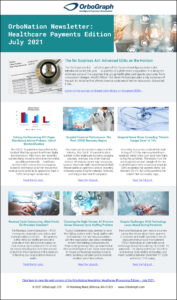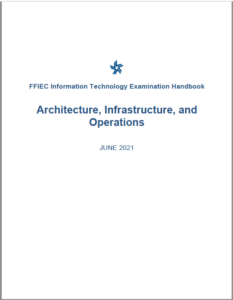Medical Lockbox
Some of the adjustments we’ve made in the era of COVID-19 have become familiar. It’s hard to imagine at this point, for instance, that there was a time when we didn’t know what a ZOOM call was. In fact, it’s now a fairly ubiquitous executive conceit to “prep” the home-office (or rec room) background when…
Read MoreSheetal Nariani is an expert on blockchain technology who has worked for over a decade in the financial management sector within the healthcare and pharmaceutical industry, including pharmaceutical giants like Cipla and Novartis, and has advised multiple renowned companies in the healthcare and pharmaceutical sector on how to plan, develop, and execute their financial strategies.
Read MoreWe’ve reported recently on the No Surprises Act and the necessity for taking steps to prepare for the resultant advanced EOBs. This is advice that nears repeating, as the deadline for implementation approaches. The Kaiser Family Foundation has a comprehensive overview of the No Surprises Act available here.
Read MoreInside Marketer at eMarketer reports on a new survey from US Bank that was conducted on 1,113 US adults. The survey revealed that the pandemic spurred a surge in digital medical payments. Some of the figures they cited that in the last year, 44% of consumers paid their bill at the doctor’s office, 28% paid through an online portal, and 23% paid via a mobile app—but still, over 32%paid by mail, and 21% paid via phone.
Read MoreIn case you missed it, over the past month, we have published incredible content on our OrboNation Blog and Modernizing RCM with AI. Review the latest OrboNation Newsletter online or via PDF download.
Read MoreThe Architecture, Infrastructure, and Operations Booklet is one in a series of booklets that compose the Federal Financial Institutions Examination Council (FFIEC) Information Technology Examination Handbook (IT Handbook), prepared for use by examiners. As described at the FFIEC website: With the publication of this booklet, the FFIEC member agencies replace the “Operations” booklet issued in July 2004.…
Read MoreThe No Surprises Act — which is part of the Consolidated Appropriations Act introduced earlier this year — is a pretty straightforward proposition: It is designed eliminate some of the surprises that group health plan participants encounter from unexpected charges. Health Affairs This Week Podcast provides a tidy summary of the act. An initiative that affects revenue cycle needs further discussion : Advanced EOBs.
Read MoreThis comes as no surprise to anyone in the industry: The COVID-19 pandemic did a number on the healthcare economy, ravaging volumes, revenues, and other financial metrics. We may be on our way to recovery, however. Kaufman Hall’s latest Hospital Flash Report paints an optimistic picture, reporting increases across hospital volumes, revenues, and margins last month compared…
Read MoreIn case you missed it, over the past month, we have published incredible content on our OrboNation Blog and Modernizing Omnichannel Check Fraud Detection. Review the latest OrboNation Newsletter online or via PDF download.
Read MoreRevCycleIntelligence reports on a new survey that shows about three-quarters of hospitals and health systems in the US deployed revenue cycle management (RCM) technology or underwent active technology deployments during the COVID-19 pandemic. The survey polled over 350 CFOs and revenue cycle leaders at hospitals and health systems between December 17, 2020, and Feb 5, 2021, using…
Read More








